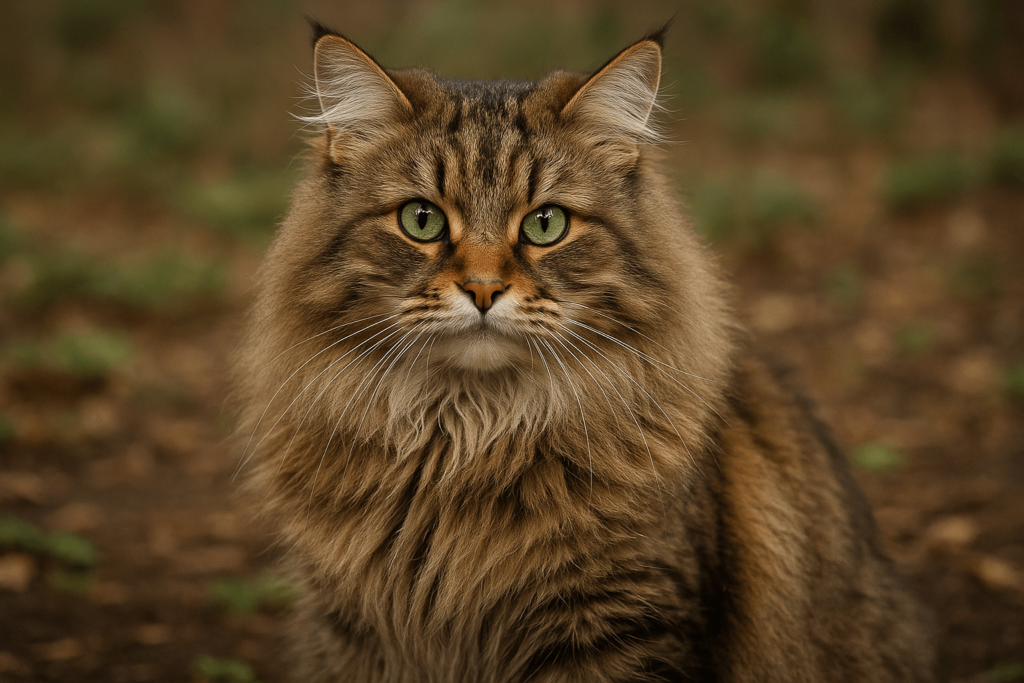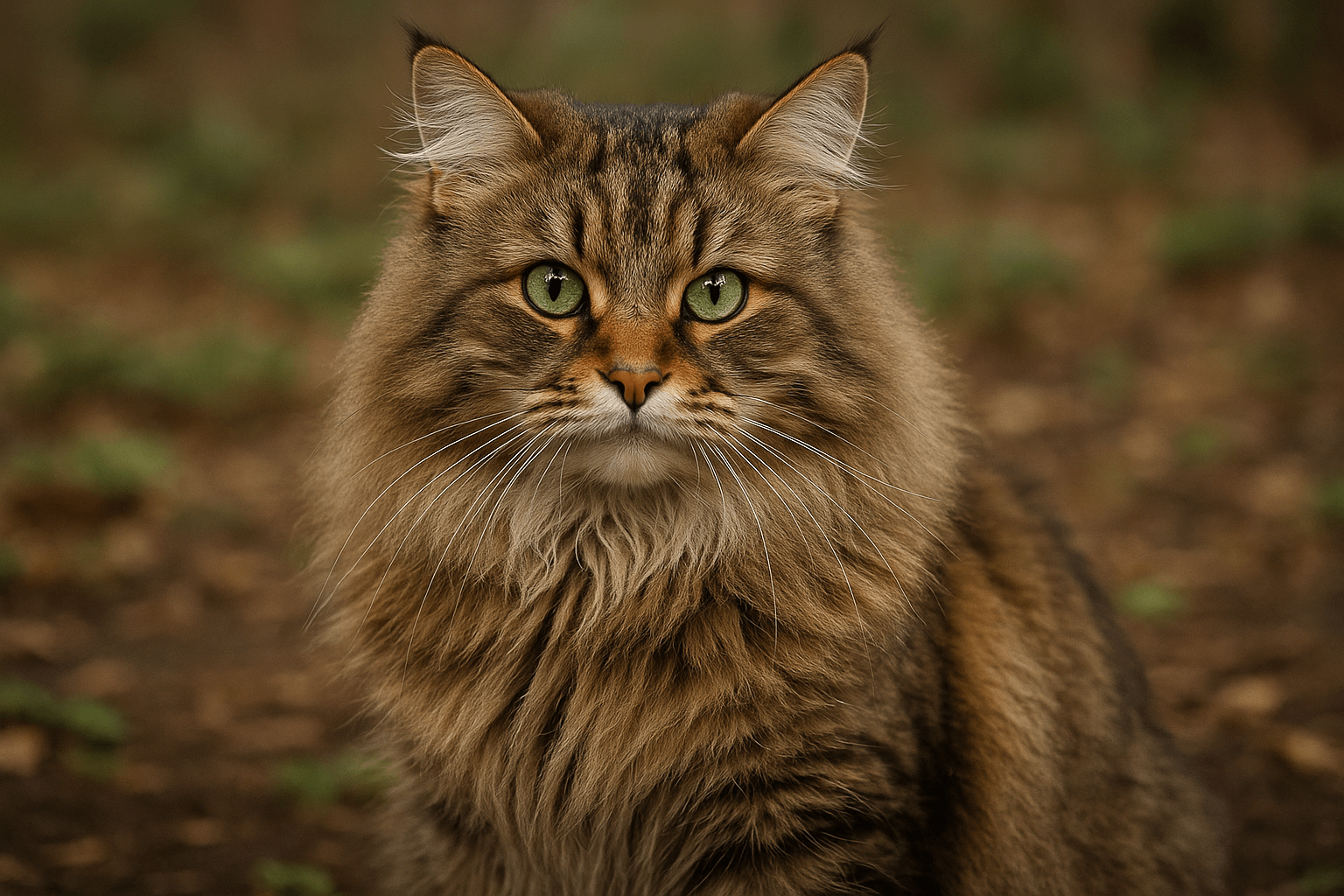Siberian Forest Cat Personality: The Gentle Giant with a Heart of Gold
The Siberian Forest Cat isn’t just another pretty face with a fluffy coat. Beneath that luxurious triple-layered fur lies a soul of rare depth—intelligent, affectionate, and surprisingly playful. Known for their lion-like mane and gentle eyes, these cats carry the quiet grace of ancient Russian forests, yet they form bonds with their humans that are as warm as a hearth on a winter night. If you’re drawn to a cat that’s loyal without being clingy, vocal without being loud, and strong without being dominant, the Siberian’s personality might be the perfect match.
The Core Traits That Define a Siberian’s Character
A Siberian’s personality isn’t just charming—it’s complex, layered, and deeply rooted in centuries of natural selection. These traits aren’t random quirks; they’re survival instincts turned into companionship.
Deeply Affectionate, Not Clingy:
Siberians form strong emotional bonds with their people, often following them from room to room—but they don’t demand constant attention. They choose when to be near you.Highly Intelligent and Curious:
These cats solve puzzles, open cabinets, and learn tricks faster than many dogs. Their curiosity is boundless, but it’s always calm and thoughtful.Remarkably Quiet Communicators:
Unlike chatty breeds, Siberians speak in soft trills and chirps—not meows. Their voice is gentle, used only to express need or delight.Playful Well Into Adulthood:
Don’t be fooled by their size. Siberians retain kitten-like energy and love interactive toys, fetch, and even water play. They’ll outlast most cats in a game of chase.Intuitively Empathetic:
Siberians sense emotion. If you’re sad, they’ll sit quietly beside you. If you’re happy, they’ll join in with playful leaps. They don’t just live with you—they resonate with you.
This isn’t a pet that performs for attention. It’s a companion who chooses you—and stays, because it wants to.

How the Siberian Differs from Other Popular Breeds
Many cat lovers assume all longhaired breeds are alike. But the Siberian’s temperament sets it apart in subtle, meaningful ways.
Compared to Ragdolls:
Ragdolls are famously limp and passive when held. Siberians prefer to be near you—on your lap, beside you, or watching you—but rarely go completely limp. They’re present, not passive.Compared to Maine Coons:
Both are large and intelligent, but Maine Coons tend to be louder and more extroverted. Siberians are quieter, more reserved, and often more selective about who they bond with deeply.Compared to Persians:
While Persians are serene and low-energy, Siberians are active, agile, and enjoy climbing, jumping, and exploring. They’re not couch potatoes—they’re forest explorers in a living room.Compared to British Shorthairs:
British Shorthairs are calm and independent, often aloof. Siberians are emotionally engaged. They notice your mood, respond to your voice, and seek interaction on their terms.Compared to Norwegian Forest Cats:
Very close relatives, but Siberians are generally more adaptable to indoor living and show higher levels of social bonding with humans. Norwegians are more independent and may prefer outdoor access.
The Siberian walks a rare line: it’s wild enough to hold your interest, yet gentle enough to curl up beside you after a long day.
Check this guide 👉Siberian Cat vs Norwegian Forest Cat: Best 7 Expert Tips!
Check this guide 👉Is the Siberian Cat Hypoallergenic? Best 7 Expert Tips!
Check this guide 👉Siberian Cat vs Maine Coon: Best 7 Expert Tips!
| Personality Strength | Why It Matters to Owners |
|---|---|
| Loyal but Independent | They stay close without suffocating—perfect for busy households. |
| Quiet and Calm Voice | Ideal for apartments or quiet homes—no constant meowing. |
| High Emotional Intelligence | They sense stress, sadness, or joy and respond with comforting presence. |
| Playful and Energetic | Keeps owners engaged, reduces boredom, and promotes mental stimulation. |
| Adaptable to Change | Tolerates travel, new people, or household changes better than most breeds. |
The Siberian’s Unique Bond with Children and Other Pets
If you’re looking for a cat that fits seamlessly into a family dynamic, the Siberian is one of the few breeds that truly thrives.
Gentle with Children:
Despite their size, Siberians are patient and tolerant. They don’t flee from loud noises or clumsy hugs—they observe, then choose to engage.Playful Without Being Rough:
They’ll chase a child’s toy or bat at a dangling sock—but rarely scratch or bite, even when overstimulated.Social with Other Cats:
Siberians often form close friendships with other felines, especially if introduced young. They enjoy companionship, not competition.Curious About Dogs:
Many Siberians coexist peacefully with dogs, especially if the dog is calm. Their confidence helps them establish boundaries without aggression.Not Territorial or Aggressive:
Unlike some breeds, Siberians rarely hiss or attack newcomers. They assess, then accept—making them ideal for multi-pet homes.
They don’t just tolerate family life—they enrich it. A Siberian doesn’t demand the spotlight. It simply becomes part of the family’s rhythm.
Why Siberians Are Ideal for Introverts and Emotional Support Roles
There’s a quiet magic to the Siberian’s presence—one that resonates deeply with those who value emotional depth over noise.
Perfect for Quiet Homes:
Their calm energy and soft voices make them ideal for readers, artists, or anyone seeking peaceful companionship.Natural Emotional Support Animals:
Their ability to sense distress and offer silent comfort has made them sought-after for anxiety, depression, and PTSD support.Low-Demand Affection:
They don’t need constant petting. A single head rub in the morning or a nap beside you at night is often enough.Non-Intrusive Presence:
They’ll sit on your desk while you work, glance up occasionally, then return to watching the window. They’re there—but never in your way.Consistent and Predictable:
Siberians rarely have mood swings. Their stability offers a grounding presence in chaotic times.
For those who feel overwhelmed by loud or needy pets, the Siberian offers companionship without pressure—a quiet friend who understands silence as well as you do.
The Siberian’s Intelligence and Problem-Solving Abilities
Don’t underestimate this fluffy giant. The Siberian’s mind is sharp, inquisitive, and endlessly creative.
Open Doors and Cabinets:
Many Siberians learn how to nudge latches or turn knobs. They’re not mischievous—they’re solving problems.Learn Tricks Easily:
Fetch, sit, high-five, even come when called—Siberians pick up commands faster than many dogs, especially with positive reinforcement.Figure Out Puzzle Toys:
They’re natural hunters. Interactive feeders and treat-dispensing toys keep them mentally engaged for hours.Remember Routines:
They know when you come home, when dinner is served, and when it’s time for your nightly walk. They observe, learn, and anticipate.Adapt to New Environments:
Moving houses? Introducing a new baby? Siberians adjust faster than most breeds, thanks to their high cognitive flexibility.
Their intelligence isn’t just impressive—it’s practical. A Siberian isn’t just a pet. It’s a thinking, feeling partner in your daily life.
The Siberian’s Adaptability to Indoor and Outdoor Living
One of the most misunderstood things about Siberians is their need for outdoor access. The truth? They thrive indoors—with the right stimulation.
Thriving Indoors:
With climbing trees, window perches, and daily play, Siberians are perfectly content as indoor cats. In fact, they live longer and safer inside.Love of High Perches:
They crave vertical space. A tall cat tree near a window satisfies their instinct to survey their domain.Water Play Enthusiasts:
Many Siberians are fascinated by running water. A fountain or dripping faucet can become their favorite toy.Not Natural Escape Artists:
Unlike some breeds, they rarely try to bolt out the door. They’re content with their territory—especially if it’s enriched.Outdoor Risks Outweigh Benefits:
Traffic, predators, disease, and theft make outdoor access dangerous. A secure catio is the ideal compromise.
Their adaptability makes them one of the most versatile breeds for modern living. You don’t need a yard. You just need to engage their mind.
FAQ: Siberian Forest Cat Personality
Are Siberian cats good for first-time cat owners?
Yes. Their gentle nature, low aggression, and adaptability make them excellent for beginners—especially if you’re ready to provide mental stimulation.
Do Siberian cats shed a lot?
They have a thick triple coat, but they shed seasonally, not year-round. Regular brushing (2–3 times weekly) keeps fur under control.
Are Siberian cats hypoallergenic?
They produce less Fel d 1 protein than most breeds, making them a better choice for many allergy sufferers—but no cat is truly hypoallergenic. Spend time with one before adopting.
How vocal are Siberian cats?
Very quiet. They chirp, trill, or purr—but rarely meow loudly. Ideal for those who dislike constant vocalization.
Do they get along with dogs?
Often, yes. Their confident, calm demeanor helps them coexist peacefully with well-behaved dogs. Supervised introductions are key.
A Companion Like No Other
The Siberian Forest Cat doesn’t demand your attention. It doesn’t perform for applause. It doesn’t need to be the center of the room.
But when you sit down, it’s there.
When you’re quiet, it’s quiet with you.
When you laugh, it flicks its tail in delight.
This isn’t just a cat.
It’s a quiet soul who chose you—and stays, not because it has to, but because it wants to.
Canned Pumpkin for Cat Diarrhea: Best 7 Expert Tips! Natural remedy to firm stools, soothe upset bellies, and support gut health safely.
Can a Cat Give You Scabies? Best 7 Expert Tips! Discover the truth about feline mites, human skin risks, and how to protect yourself—without panic.
Cat Flea vs Human Flea: Best 7 Expert Tips! Discover the truth about bites, species, and how to eliminate infestations for good.
Weird Cat Behaviors: Best 7 Expert Tips! Discover why cats do strange things—and how to understand, not punish, their instincts for a happier home.





